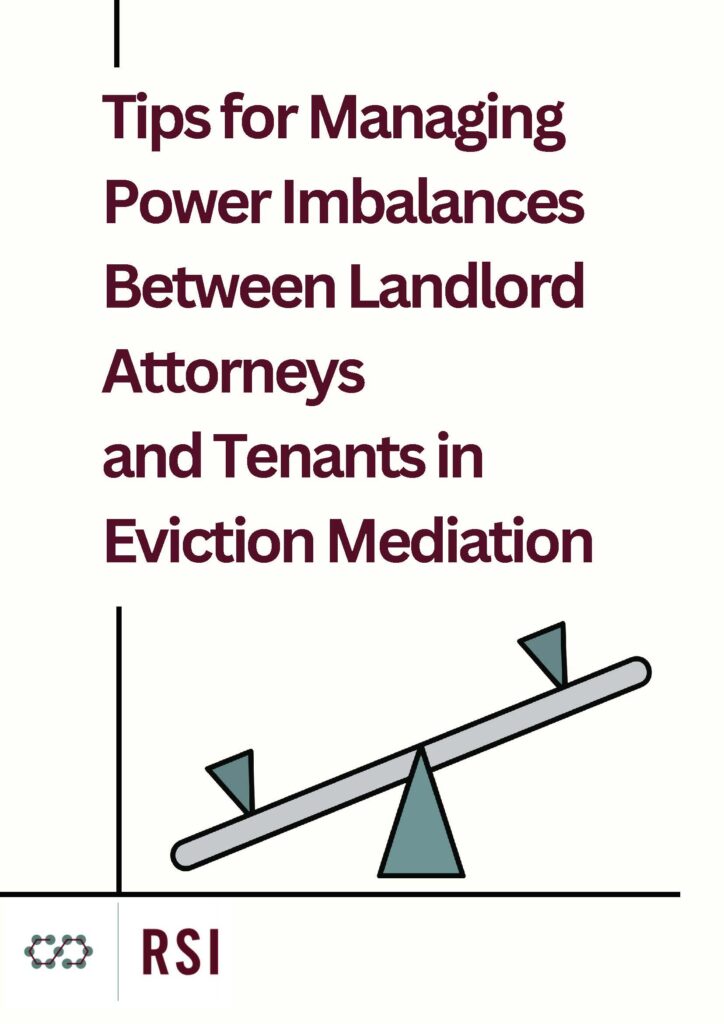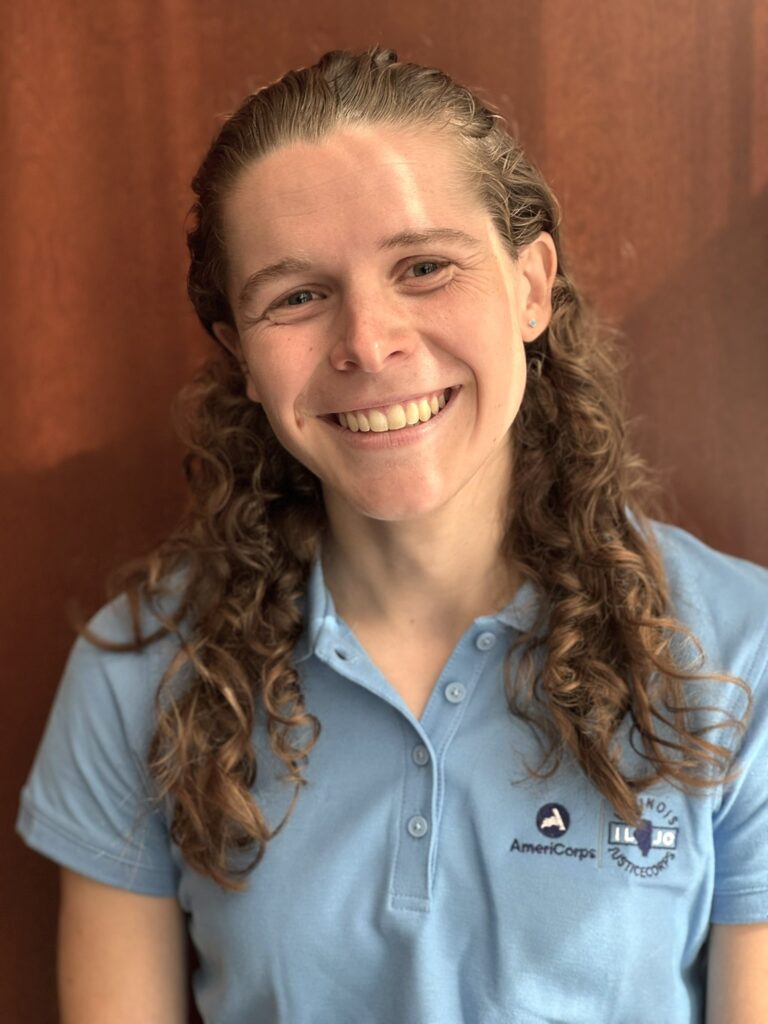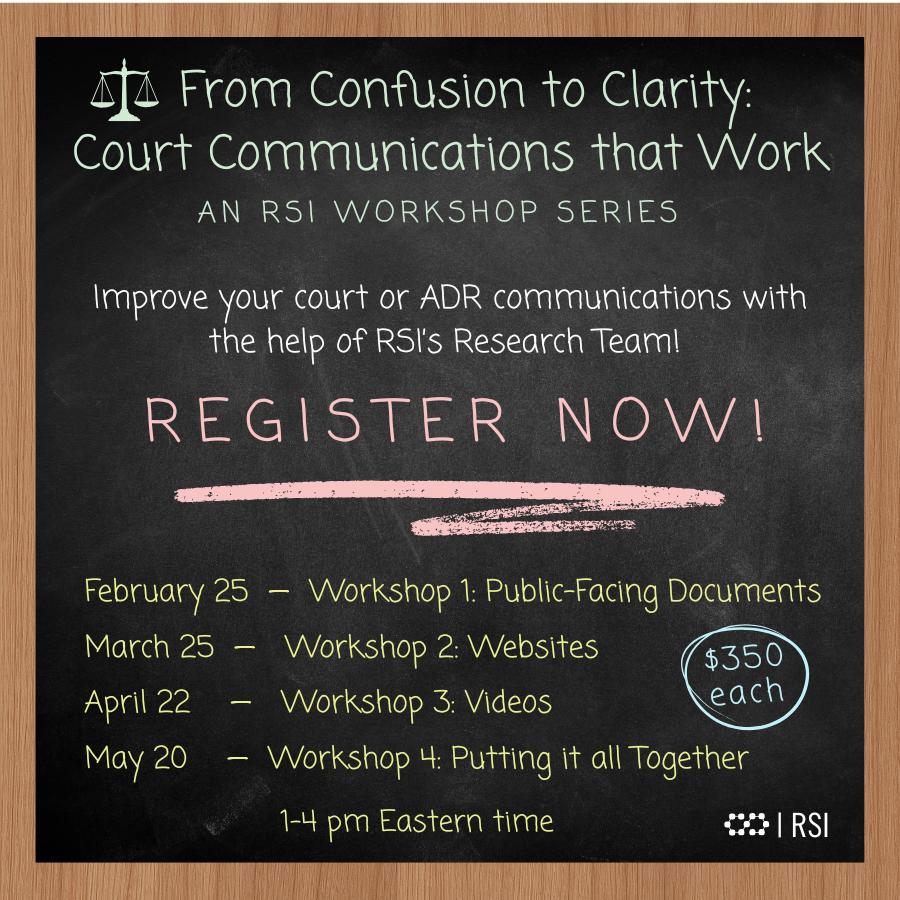What happens when one party is an experienced attorney ready to negotiate, while the other is a self-represented tenant who is unsure of what to say or what the terms in the agreement really mean? This scenario is common in eviction mediations, where differences in legal knowledge, resources and confidence can create a stark imbalance in disputes between landlords and tenants. These imbalances are not always obvious, but they can quietly shape the course of the discussion and the fairness of the outcome. For mediators, navigating these dynamics is one of the toughest challenges of eviction cases. How does a mediator balance power without going too far in assisting the tenant?
To better support mediators in this critical work, Resolution Systems Institute (RSI) has developed a Power Imbalance Toolkit. This resource draws on direct observation of eviction mediations, review of academic literature, and feedback from practitioners to identify the most common imbalance issues and provide practical strategies for mediators to address them. The toolkit is designed to be both accessible and actionable: Mediators can use it for training, preparation or even a quick reference during a session.
Why a Toolkit on Power Imbalance?
Since 2021, as an aspect of fulfilling its mission to enhance court alternative dispute resolution (ADR) systems, RSI has administered an eviction mediation program in Kane County, Illinois. As part of this work, RSI observes eviction mediations from time to time to identify what is working well and where additional support for mediators might be needed.
In the summer of 2025, our research team focused specifically on how power imbalance plays out in these sessions. In reviewing these mediations, we noticed recurring patterns: Tenants frequently came to mediation not understanding the court process, and they struggled with legal terms and procedures; mediators grew familiar with attorneys from past mediations; and some tenants became silent or disengaged under the stress of the situation.
Academic research confirms that power imbalances can erode mediation’s intended benefits. Research points out that while mediation has the potential to give tenants a voice and produce fairer outcomes than litigation, these benefits can be undermined when mediators lack clear strategies for addressing imbalance. Moreover, consistent with RSI’s observations, scholars highlight the persistent and layered power disparities in landlord-tenant relationships, from differences in financial resources and legal knowledge to broader structural inequalities such as poverty disparities. A review of the related literature finds a gap: Much has been written about structural reforms and ethical questions, but less attention has been paid to the micro-level conduct of mediators and the practical steps they can take during sessions to account for power imbalances.
We saw during our observations that mediators sometimes responded well to these challenges, but at other times they lacked specific tools or awareness to recognize and respond to power imbalances in real time. For example, in some sessions, tenants asked about legal terms, but mediators hesitated to provide an explanation, noting that they had not received clear guidance on how to handle such requests. This is not uncommon among mediators in general, and it is not surprising. Most mediation training covers neutrality, communication and facilitation skills in a comprehensive way, but power imbalance in eviction cases raises a distinct set of issues that may not be directly addressed in standard training. In addition, many mediators are also mindful of maintaining clear distinctions between providing legal information and providing legal advice.
We developed the Power Imbalance Toolkit to help bridge this gap, offering mediators concrete, context-specific strategies to recognize and respond to the challenges of eviction mediation in real time.
What’s Inside the Toolkit?
The toolkit is organized into nine sections, each focused on a particular imbalance that mediators are likely to encounter in eviction sessions:
- Technological Issues — When parties join remotely, particularly via mobile phone, and struggle with Zoom functions, electronic document signing, etc.
- Mediator Mediated with the Attorney Before — When mediators have mediated with the attorney before and have a level of familiarity with them, which tenants may see as an indicator of bias
- One Party’s Dominance — When one party controls the conversation, sidelining the other party
- One Party’s Silence or Passivity — When one party remains quiet, making it possible to mistake silence for consent
- One Party’s Emotional Stress and Fear — When parties’ anxiety or fear inhibits participation
- Parties’ Unfamiliarity with Court Procedures and Legal Terms — When parties, usually tenants, do not understand legal terms like “seal the case” or “dismissed without prejudice”
- Complex Proposals — When attorneys suggest intricate settlement terms that may be hard for tenants to grasp
- Drafting Agreements — When agreements are written in legalese or terms are dictated by attorneys without tenant input
- Scope of the Discussion — When attorneys limit the scope of the conversation and do not address issues like unpaid rent after a tenant moves out
Each section of the toolkit follows the same structure to make it easy for mediators to use. It begins with “What is the issue and what should I watch for?,” which describes the specific imbalance and highlights common warning signs that might appear during a session. The second part, “What should I do?,” provides concrete approaches that mediators can take, including sample questions and prompts to encourage fuller participation or check for understanding. Finally, each section ends with “Quick Tips for Your Toolbox,” a concise summary that mediators can consult at a glance, whether as preparation just before a mediation or as a quick refresher.
The toolkit also includes a plain-language glossary of legal terms that commonly arise in eviction mediation. Terms like “sealing the case” and “dismissed without prejudice” can be intimidating to tenants who are unfamiliar with court processes. The glossary gives mediators simple, accessible definitions they can use to ensure tenants understand what is being discussed.
How Mediators Can Use the Toolkit
The Power Imbalance Toolkit is meant to be flexible. Mediators can:
- Prepare before sessions by reviewing the common issues and reminding themselves of strategies to address those issues
- Reference it quickly during sessions for language prompts or quick tips
- Incorporate it into training for new mediators who are just beginning to work on eviction cases
RSI sees the toolkit not as a static document, but as a living resource. We encourage mediators to share their feedback and experiences, which will help refine and expand the strategies over time.
Looking Ahead
Addressing power imbalances in mediation is essential to ensuring fairness and accessibility. While mediators cannot eliminate the structural disparities that exist outside the mediation room, they can take meaningful steps to create a process where all parties feel heard and where agreements reflect informed consent.
The Power Imbalance Toolkit is part of RSI’s broader mission to strengthen mediation practice and improve access to justice. We hope mediators will find it useful in their day-to-day work and that it sparks conversation about how to best support tenants and landlords navigating the difficult realities of eviction.
You can read and download the full Power Imbalance Toolkit on our website. We welcome your feedback and ideas for future updates. Together, we can continue building mediation practices that are fair, effective and responsive to the communities they serve.




